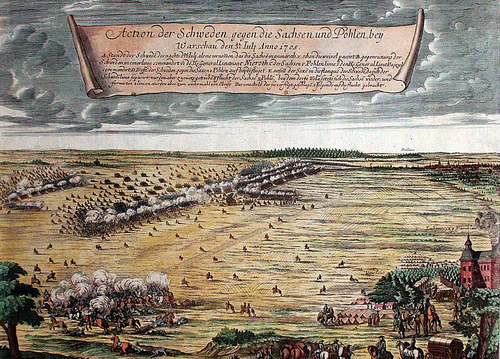Events of 1705
1705 (MDCCV) was a common year starting on Thursday of the Gregorian calendar and a common year starting on Monday of the Julian calendar, marking significant historical events. Below is a summary of notable events that occurred throughout the year.
January–March
- January 8 – George Frideric Handel’s first opera, Almira, premiered in Hamburg.
- January 31 – The Hester, a British 28-gun sailing ship with a crew of 70, is lost in Persia.
- February 7 – The Twelfth Siege of Gibraltar begins, with French and Spanish forces temporarily seizing a strategic fortress.
- February 25 – Handel’s opera Nero premieres in Hamburg.
- February 26 – A French Navy fleet aids the attempt to retake Gibraltar from England.
- March 8 – The Province of Carolina incorporates the town of Bath, the first incorporated town in present-day North Carolina.
- March 14 – Queen Anne gives royal assent to the Alien Act 1705, pressuring Scotland for union negotiations.
- March 31 (March 20 O.S.) – The Twelfth Siege of Gibraltar ends, with a naval battle forcing a French retreat.
April–June
- April 5 – Queen Anne dissolves the English House of Commons and orders new elections.
- April 9 – The Queen’s Theatre opens in Westminster, premiering an opera.
- April 16 – Isaac Newton is honored by Queen Anne with a Knight Bachelor.
- May 5 – Joseph I becomes the Holy Roman Emperor.
- June 6 – The election of the English House of Commons concludes with the Tories retaining a majority.
- June 20 – The Pact of Genoa is signed as a military alliance during the War of Spanish Succession.
July–September
- July 11 – José de Grimaldo becomes the head of the Spanish government.
- July 18 – The Battle of Elixheim results in a significant victory for the English forces.
- September 17 – Pakubuwono I is proclaimed the new Sultan of Martaram in Java.
- September 20 – Francis II Rákóczi is proclaimed the ruler of Hungary.
- September 24 (O.S.) – Stanisław Leszczyński is crowned as King of Poland.
October–December
- October 3 – A colliery explosion in Gateshead, England, kills 31.
- November 5 – The Dublin Gazette of Ireland publishes its first edition.
- November 28 – The Treaty of Warsaw is concluded during the Great Northern War.
- December 25 – A massacre occurs in Munich during a failed militia uprising.
- December 26 – Fateh Singh, a Sikh martyr, is murdered for refusing to convert to Islam.
Notable Births of 1705
- January 1 – Charles Chauncy, American clergyman.
- February 27 – Peter Artedi, Swedish naturalist.
- March 30 – August Johann Rösel von Rosenhof, German miniature painter.
- November 4 – Louis-Élisabeth de La Vergne de Tressan, French soldier.
Notable Deaths of 1705
- January 7 – Giovanni Battista Spínola, Archbishop of Genoa.
- February 1 – Sophia Charlotte of Hanover, first Queen consort in Prussia.
- August 16 – Jacob Bernoulli, Swiss mathematician.
- December 31 – Catherine of Braganza, widowed queen consort of Charles II of England.
The year 1705 was significant in various historical contexts, from military conflicts to cultural milestones, shaping the course of many nations.

